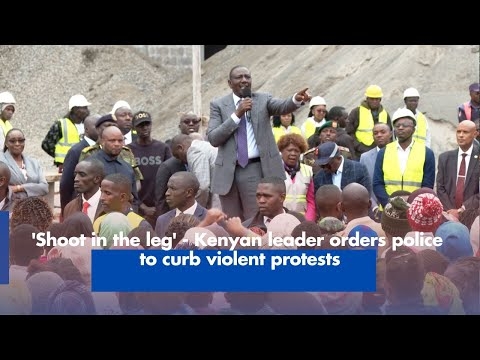There is a lot of ongoing political rhetoric and lines have been drawn on the Building Bridges Initiative.
Kenyans are soon going for a referendum because as things are, it is a matter of when and not if. With Third Alliance’s Punguza Mizigo Bill’s collapse, BBI is the new bride and already, the political class is split into.
It is, however, surprising, that even before the report is officially released to the public, speculative agendas have put us on a euphoric excitement. Those opposed to the BBI have already corked their guns while those drumming support, have already taken the shield. This predetermined behavioural approach raises more questions than answers.
We have a very common tendency of taking sides long before we experiment, theorise or understand the idea presented. Kenyans are more concerned about who supports what and who opposes who. No political inclination has sought knowledge on the plebiscite to educate Kenyans.
Leaders have openly opposed or supported the BBI without concrete evidence or information. They have based their arguments on emotional attachment to individuals rather than ideas. As a nation, our primary focus must lead us to where we can sufficiently expand the job market, creation of wealth among the citizenry and improve sanitation and health-related agenda.
But here we are, yet again, far and wide off the mark. We are faced with tough economic choices as a country, poor road network, inequality in resource distribution, dissatisfying electoral reforms and an ignorant electorate.
Civic education should be a continuous process with progressive reports indicating our improvement. This republic needs satisfying efforts to eradicate ignorance. We should create tangible steps towards judicial independence, good leadership and governance advocacy and social unity and tranquility.
Without these meaningful trends, we will have a large number of Kenyans championing for their tribal demigods, cheering on plunders and advocating for the same elite class fully responsible for political misdeeds.
Kenyans must look at issues not persons, agendas not pockets, ideas not sideshows. They must procreate a new era of sitting down and deliberating on the eradication of political misgivings that have crippled us for a long time now.
Civic education on the BBI should be done with utmost sincerity and openness. It is the only way Kenyans can make an informed choice on whether to vote for or against it. Political lobbying at this stage can only mean that we are staring at a waste of resources long before the people get nuggets of what the BBI is about.
It’s a plea to Kenyans to apply tenacity and pass a strong resolve against political bickering, unending tribal bigotry and stagnating economic development. It is a merited staircase that we can all climb to the top.
Eventually, the economic healing, social and political calm, will progressively benefit us if we cumulatively understand the overall importance of our cohesion.
Our willingness to fight bad governance can be enhanced through multiple collaboration of state agencies, institutions and a harmonised judicial process.
Kariuki is a journalist and a political commentator








![[PHOTOS] Ruto hosts UDM leaders at State House](/_next/image?url=https%3A%2F%2Fcdn.radioafrica.digital%2Fimage%2F2025%2F07%2Fc69cdbaf-1cbd-4be3-a7e5-a42efcac7189.jpeg&w=3840&q=100)


